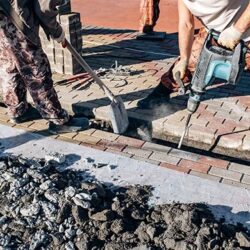In Newcastle and its surrounding suburbs, comfortable living includes reliable hot water, warm showers, clean dishes, and cosy baths. When your system starts failing, a well‑planned Hot Water System Replacement becomes vital. This guide walks you through what to watch for, what options are available, cost considerations, and how to choose the right system in Newcastle.
When It’s Time for a Hot Water System Replacement
Keep an eye out for these classic indicators:
- Age: Many systems degrade after roughly 10‑15 years. If yours is approaching that, performance tends to drop.
- Frequent repairs: If you’re fixing issues often, noise, fluctuating temperature, and leaks, it may cost more long‑term than replacing.
- Loss of hot water capacity: Running out faster than before, reduced volume, and longer wait times for hot water.
- Visible rust or discolouration: Rust‑coloured or brown water from hot taps, even when cold, remains clear.
- Leakage or corrosion: Dripping around valves, moisture at the base, visible rust on the body.
- Higher energy bills: Signs your system is expending more energy to maintain heat; budget increasing even without usage changes.
Types of Systems Available in Newcastle
Choosing the format that works best for your home, climate, and budget is key.
- Storage tank electric: Traditional, usually cheaper to install, simpler tech, but higher running costs.
- Gas tank: Faster heating, may be cheaper in operation depending on local gas prices.
- Continuous flow (on‑demand): No tank, heating water only when needed, efficient, space‑saving.
- Heat pump systems: More energy efficient, using ambient air to heat water; higher initial cost but savings over time.
- Solar‑boosted or solar thermal systems: Using roof space, sun exposure to assist in heating; may reduce electricity/gas usage significantly.
Cost Factors for Hot Water System Replacement in Newcastle
These are the variables that affect how much you’ll pay:
- Size/capacity: Bigger tanks or higher demand households cost more.
- Type of fuel/energy: Electric, gas, solar, and heat pump differ widely in both upfront and operational costs.
- Location and installation complexity: How accessible the existing system is; need for new piping or ventilation; whether you have to remove or replace parts of plumbing or gas lines.
- Energy efficiency ratings: More efficient systems cost more upfront but save on electricity or gas bills over time.
- Local codes and permits: Some neighbourhoods or councils require permits, inspections, or compliance checks that add to the cost.
Choosing the Best System for Your Needs
Think about how you use hot water:
- Number of people in household, how many bathrooms, if there are multiple showers in the morning routine.
- Space: If space is tight, continuous flow or compact heat pump units may work better.
- Budget: Both upfront cost and ongoing running costs matter; sometimes spending more now saves over the years.
- Environmental considerations: If reducing energy use is a priority, heat pumps or solar options are strong contenders.
- Reliability and warranties: Go for systems with good reviews, dependable parts, and generous warranties on tank or heat exchanger components.
Practical Tips for Replacement
- Get multiple quotes from reputable local plumbers. Compare not just price, but licences, warranties, and included labour.
- Remove the old system properly: factor in disposal and cleaning up the area.
- Use local rebates or incentives: sometimes new systems qualify for energy efficiency rebates that reduce cost.
- Check the installation schedule: off‑peak periods may bring better availability and potentially lower labour rates.
Final Thoughts
A well‑executed Hot Water System Replacement in Newcastle is an investment in comfort, efficiency, and peace of mind. Spotting warning signs early, age, leaks, rising costs, and choosing a system suited to your household’s demands means fewer breakdowns, lower bills, and steamy showers for years to come.
When you upgrade carefully, you’re not just replacing hardware—you’re enhancing your home’s comfort, efficiency, and reliability. A new hot water system can make a noticeable difference in daily life, from faster heating times and consistent water pressure to lower energy bills and reduced maintenance hassles.
Modern systems are designed with energy efficiency and convenience in mind, offering smarter controls, better insulation, and longer lifespans than older units. Choosing the right system—whether it’s solar, gas, electric, or a heat pump—means tailoring performance to your household’s needs, ensuring hot water is always available when you need it most.




